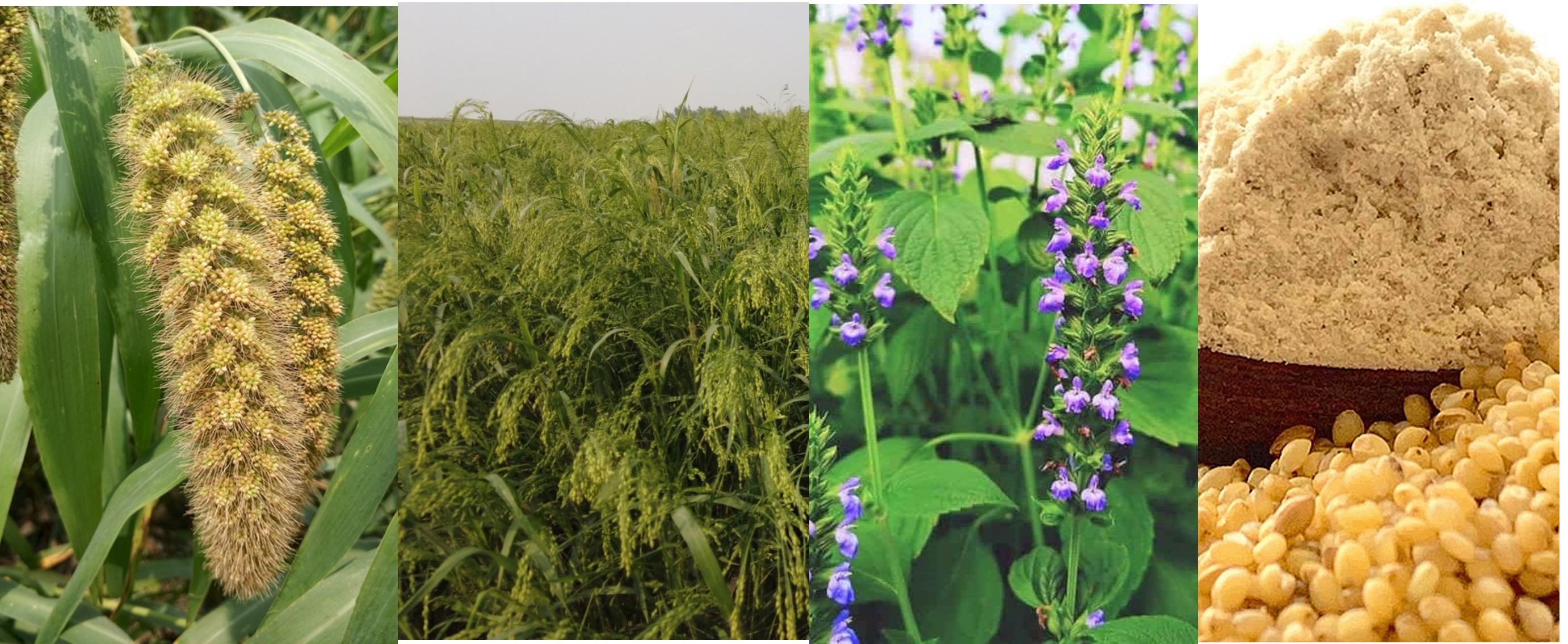Adaptation and Upscaling of Minor Cereals in the Active Brahmaputra-Jamuna and Ganges Floodplains
Gazipur
Food production in Bangladesh is dominated by rice, wheat, and maize, but minor cereals like foxtail millet and proso millet as well as chia are gaining popularity due to their nutritional benefits and adaptability to Charland ecosystems. Despite their potential, the growth of those crops is constrained by low productivity (2.0 t ha⁻¹). To promote their adoption, it is essential to assess varietal suitability, and to pilot high-performing varieties in existing cropping systems, analyze their nutritional advantages over major cereals, and evaluate their profitability and market potential.
The project, coordinated by Gazipur Agricultural University (GAU) in collaboration with BARI’s On-Farm Research Division (OFRD), is led by Prof. Dr. Md. Rafiqul Islam, Principal Investigator (PI) with Prof. Dr. Abiar Rahman and Dr. Asif Reza Anik serving as co-investigators. Dr. Abdullh-Al-Mahmud, PI leads BARI’s efforts, supported by Dr. Md. Samin Hossain Molla and Dr. Md. Zannatul Ferdous. GAU is responsible for objectives 1 (part), 3, and 4, while OFRD handles varietal selection, upscaling, and piloting of minor cereals. Project activities are carried out on-farm, at BARI and GAU stations, and in GAU’s laboratory.
Field trials demonstrated the potential of minor cereals for enhancing crop diversity and profitability in Charland areas. BARI Kaon-4 (foxtail millet) achieved a 61% higher yield than local varieties, particularly in Gaibandha, while BARI Cheena-1 (proso millet) outperformed local cultivars by 25%, with the highest yields in Pabna. BARI Chia-1 exhibited higher productivity in Gaibandha, proving more profitable than other locations. At GAU, line sowing increased ineffective tillers in proso millet, whereas broadcast sowing yielded the best results. Early to mid-December was optimal for proso millet and chia cultivation. Farmers showed interest in adopting high-yielding BARI varieties. These findings support the integration of minor cereals into existing cropping systems for improved food security and sustainable farming.
On-farm trials by OFRD across three locations showed strong farmer interest in BARI varieties like BARI Cheena-1 and -2, BARI Kaon-2 and 4, and BARI Chia-1 due to their high yield and economic benefits. On-station research at GAU confirmed that broadcasting with a high seed rate is effective for proso millet, with early to mid-December as the optimal sowing time. Local Chia 1 from Rajshahi Sadar performed well, but further research is needed to ensure its adaptability and consistent yield.
The project has significantly boosted production and farmers' income, and market access in Charland areas by introducing high-yielding varieties of minor cereals like BARI Kaon-4, BARI Cheena-1, and BARI Chia-1, with BARI Kaon-4 showing 61% yield increase and BARI Cheena-1 25% increase.
The sustainability of the project results is being ensured through the integration of high-performing minor cereal varieties into existing cropping systems, supported by ongoing collaboration with OFRD, BARI. The project's outcomes—including data, reports and maps, skills, and recommendations—will be utilized to strengthen research-extension-farmer linkages. The project is integrating its outcomes with government agricultural development programs to obtain future funding and policy support for sustained impact.

